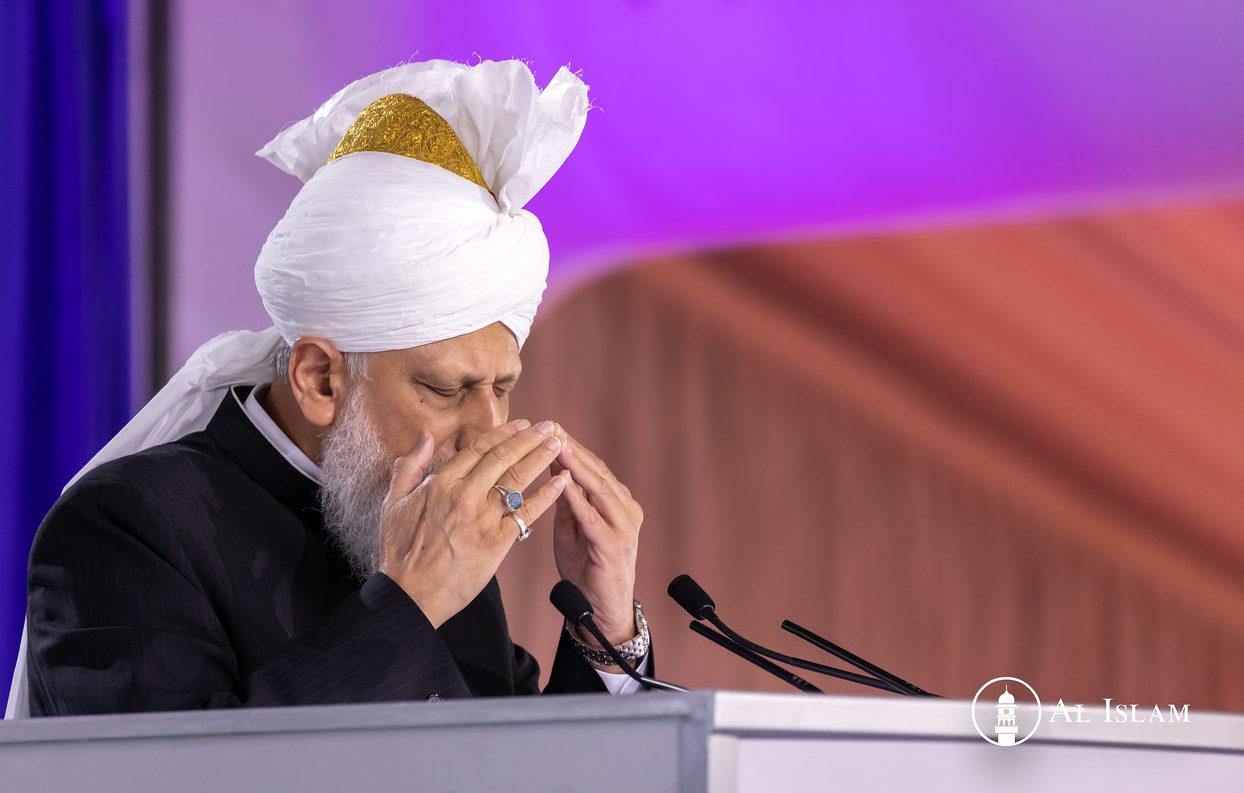AALIYA AMEEN, KOLLAM
MARCH 19, 2024
Ramadan, for Muslims worldwide, is a month that is eagerly awaited throughout the year. Fasting, prescribed in the month, serves as a means of self-reflection, moral strengthening, and spiritual advancement.
Generally, the concept of fasting constitutes avoiding a certain food supplement. However, Islamic fasting requires complete abstinence from all types of food and drink. In the Holy Quran, fasting has been prescribed from dawn to sunset. It says:
“O ye who believe! fasting is prescribed for you, as it was prescribed for those before you, so that you may become righteous.”[1]
Thus, the foremost objective of fasting is to attain righteousness. The Quran continues to say that fasting also becomes a means of exalting Allah and expressing gratitude to Him[2].
How does fasting lead to piety? Despite having provisions to eat and drink, a person fasting abstains from them in obedience to the command of God. By practising abstinence from things that are otherwise lawful for them, it becomes easier for a person to abstain from things that God has declared to be unlawful. Besides, fasting also requires one to refrain from all sorts of immoral behaviour, like loose talks and engaging in conflicts. The Holy Prophetsa says:
“When any one of you gets up in the morning in the state of fasting, he should neither use obscene language nor do any act of ignorance. And if anyone slanders him or quarrels with him, he should say, ‘I am fasting, I am fasting’.”[3]
Fasting also entails acts of charity. In Islam, alms-giving and caring for the poor are highly emphasised that it becomes part of a Muslim’s daily life. However, during Ramadan, Muslims are required to redouble their efforts in this field. It prompts the affluent to empathise with the less fortunate by experiencing hunger themselves. This shared experience fosters compassion and prompts generosity towards those in need.
Conversely, fasting reminds the poor that their patience and perseverance in the face of adversity are rewarded by God, akin to the spiritual rewards promised to those who fast.
Fasting also comes with many psychological and physical benefits. One of the significant advantages of fasting is that it serves as a profound discipline, honing the mind and body to endure challenges such as hunger and thirst, and fosters resilience and self-control. When a person observes abstinence from eating and drinking and keeps away from all activities of pleasure, they strengthen their ability to resist temptation and pursue goodness. Likewise, as fasting requires one to detach themselves from worldly distractions and develop a deeper connection with God, it becomes easier for a person to discipline themselves.
Additionally, fasting has been recognised by medical experts as a means of restoring health, aiding in the recovery from certain diseases, and even reversing the effects of ageing [4], promoting overall well-being and moderation in many important aspects of life, including physical, emotional, and spiritual health.
The Holy Prophetsa describes fasting as an act of worship that is highly regarded in the sight of Allah. He says:
“Allah, the Mighty and Sublime, said: ‘Every deed of the son of Adam is for him, except fasting; it is for Me and I shall reward for it’. By the one in whose hand is the soul of Muhmmad, the smell coming from the mouth of the fasting person is better before Allah than the fragrance of musk.”[5]
The Worldwide Head of the Ahmadiyya Muslim Community, Hazrat Mirza Masroor Ahmadaba, said:
“To remain hungry from morning until evening is not considered a fast. The Promised Messiahas has stated that through the practice of fasting, God Almighty desires for a person to decrease one form of nourishment and increase in another form of sustenance. A person observing the fast remains occupied in the remembrance of God Almighty in order to develop a state of inclination towards God and detachment from the world.”[6]
Overall, fasting is a practice that effectively brings about moral transformation in a person, serving as a means of attaining righteousness, self-discipline, as well as physical and mental rejuvenation.
Aaliya Ameen is currently pursuing her Master’s in Applied Psychology.
END NOTES
[1] Holy Quran 2:184
[2] Holy Quran 2:186
[3] Sahih Muslim, Kitab as-Saum (The Book on Fasting)
[4] Effects of Intermittent Fasting on Health, Aging, and Disease, Rafael de Cabo and Mark P Mattson, The New England Journal of Medicine 26 December 2019
[5] Sunan an-Nasai, Kitab as-Siyam (The Book on Fasting)
[6] Friday Sermon dated 10 May 2019












1 Comment
Muddasir Ahmad M · March 7, 2025 at 5:01 pm
All praise is due to Allah, the lord of all worlds. Masha Allah your writing is beautifully composed, supported by ample evidence that strengthens every word. The clarity with which it is written makes it a joy to read, holding the reader’s attention from start to finish. May Allah, the most merciful, bless you with even more knowledge and wisdom, and ease your path to jannah. Ameen